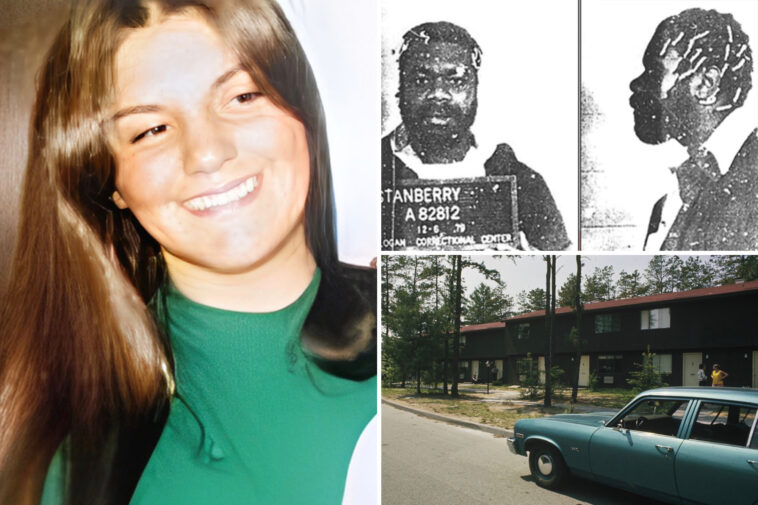A violent New Hampshire cold case has been solved, with the murderer being identified as the original suspect, who was never arrested because a flawed FBI report “thwarted” the investigation.
Judith Lord, 22, was found dead inside her Concord apartment on May 20, 1975, months after moving in, Attorney General John M. Formella said Monday.
A building manager discovered Lord dead in a bed upstairs while he was looking for her unpaid rent.
Lord’s 20-month-old son was found alive and unharmed in a crib in an adjacent room.
She died of homicidal strangulation, according to an autopsy.
Evidence around the disarrayed room pointed to a violent struggle and a sexual assault, with hairs found on Lord’s body and bed, while seminal fluid was found hardened on top of a still-damp towel.
Investigators identified a suspect as Lord’s neighbor, Ernest Theodore Gable, who was 24 at the time.
Despite having Gable as a suspect, he could not be properly accused because “the case was severely hindered by a flawed forensic report issued by the FBI in 1975,” Formella said.
“At the time, microscopic hair analysis techniques led to an incorrect conclusion that the suspect could not have contributed the hairs found at the scene,” the report found.
Other evidence contradicted the analysis results, with Gable’s fingerprints being found at the scene and witnesses revealing Lord had feared him.
During their investigation, detectives discovered Lord had been afraid of both her husband and Gable for some time because of his “persistent and unwanted advances.”
“Judith told her sister she was afraid of both her husband and her African American neighbor next door, indicating Mr. Gable, because he ‘had made remarks to her about wanting to see her nude,’” the attorney general’s report found.
Lord had moved into the Concord Gardens apartment complex with her husband, Gregory, and their son three months earlier after moving back from Germany.
Start your day with all you need to know
Morning Report delivers the latest news, videos, photos and more.
Thanks for signing up!
Gregory Lord was stationed in the European country for several months before going on leave and returning to the US.
The couple lived together until Lord was assaulted by her husband on May 4, 1975, 16 days before her murder.
Gregory Lord was arrested and immediately entered a guilty plea for simple assault and was fined $100.
He moved out of the shared apartment, relocating to his grandmother’s across the street, taking everything with him besides Lord, their son, a bed and a crib.
Gregory Lord was initially the primary suspect but was cleared after his brother and grandmother corroborated his alibi.
Lord resigned from her job at a nearby nursing home after the assault and was left without anything.
She cashed her final paycheck the day before her death and returned to the apartment complex to hang out with neighbors.
She returned home just before midnight. Gable’s wife told police she heard Lord in the shower minutes later.
At around 12:50 a.m., neighbors reported hearing screaming from Lord’s apartment before sounds of moaning, believed to be intercourse, resonated through the walls.
After Lord’s murder, several witnesses came forward and revealed Lord’s disturbing interactions with Gable, including when he knocked on her door at 2 a.m. while his wife was out of town, asking his future victim if she “wanted to party with him.”
“One coworker specifically recalled Ms. Lord saying that this man was ‘always bothering her and hanging around her doors and windows,’” the report detailed.
Gable was never charged with the murder.
He was fatally stabbed nearly 13 years later on Feb. 1, 1987, in Los Angeles, California.
If he were alive today, Gable would’ve been charged with First Degree Murder, both for knowingly causing Lord’s death during the commission of aggravated felonious sexual assault, and for purposely causing her death by strangulation, Formella said.
“It is my hope that this long-awaited conclusion will finally bring peace and closure to Judy Lord’s family and the entire Concord community after nearly five decades of delayed justice,” Formella said. “This resolution proves that no cold case is ever truly closed until the truth is found.”









